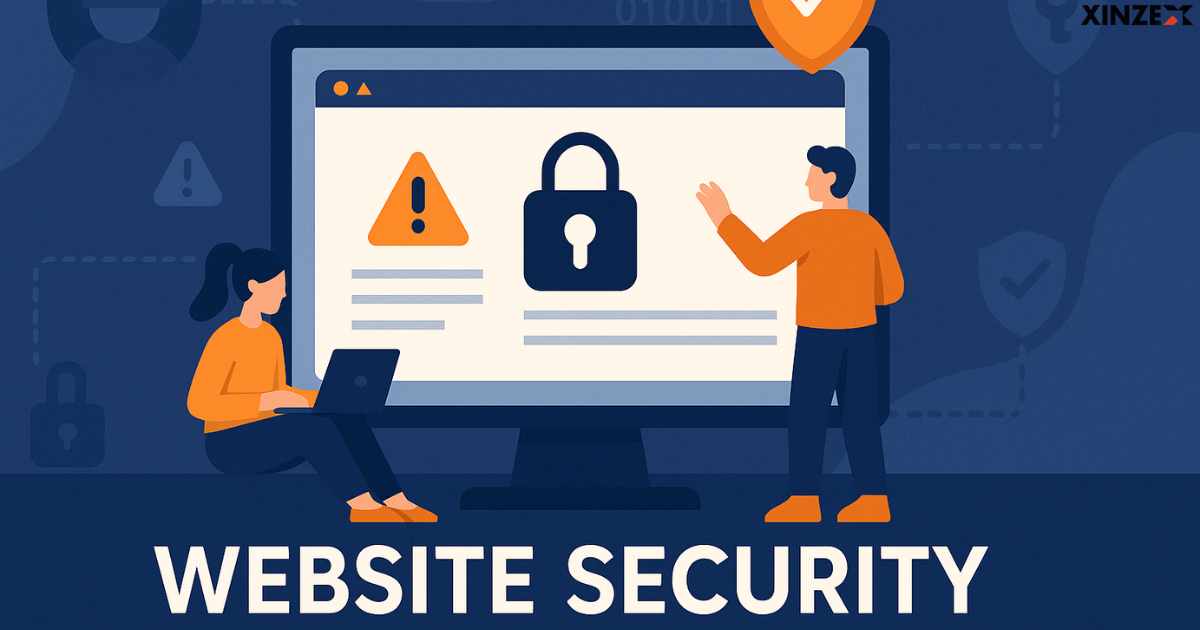In today’s digital landscape, website security is not just an option; it’s a necessity. Cyber threats are evolving, and businesses must stay ahead to protect their data, customers, and reputation. With increasing cyberattacks, compliance regulations, and customer expectations, prioritizing website security in 2025 is more critical than ever.
Why Cyber Attacks Are Increasing?
The rise in digital transactions, cloud storage, and remote work has made businesses more vulnerable to cyber threats. Hackers use advanced techniques to exploit vulnerabilities, making it essential for businesses to implement robust security measures.
Common Cyber Threats in 2025
Phishing Attacks – Fraudulent emails and messages trick users into revealing sensitive information.
Ransomware – Cybercriminals encrypt business data and demand a ransom for its release.
DDoS Attacks – Attackers flood websites with traffic, causing downtime and disruption.
Malware & SQL Injection – Hackers inject malicious code to steal or manipulate sensitive data.
Why Website Security Matters?
1. Protects Business Reputation
A security breach can severely damage a business’s credibility and customer trust. Once a brand loses trust, regaining it can be challenging and costly.
2. Prevents Financial Losses
Cyberattacks result in significant financial damage, from ransom payments to legal fees and loss of revenue due to downtime. Businesses must invest in security to prevent such financial setbacks.
3. Compliance with Data Protection Laws
Laws like GDPR, CCPA, and other regulations require businesses to safeguard customer data. Non-compliance can lead to heavy fines and legal consequences.
4. Ensures Uninterrupted Business Operations
Downtime due to cyberattacks can disrupt business operations, affecting productivity and revenue. Strong security measures help maintain seamless functionality.
Read More:- How Xinzex Builds Scalable Apps for 2025
Best Practices for Website Security
1. SSL Certificates & Encryption
Using SSL certificates encrypts data transmission, preventing hackers from intercepting sensitive information.
2. Regular Software & Plugin Updates
Outdated software is a common entry point for hackers. Keeping your CMS, plugins, and security patches updated minimizes vulnerabilities.
3. Multi-Factor Authentication
Enabling MFA adds an extra layer of security by requiring users to verify their identity using multiple authentication methods.
4. Web Application Firewalls
A firewall blocks malicious traffic, protecting the website from cyber threats like SQL injections and cross-site scripting.
5. Regular Data Backups
Frequent backups ensure that businesses can recover their data in case of a breach or system failure.
6. Employee Cybersecurity Training
Human error is one of the leading causes of security breaches. Training employees on recognizing phishing emails and security best practices is crucial.
Future Trends in Website Security
1. Artificial Intelligence (AI) & Machine Learning
AI-driven security solutions can detect and respond to threats in real-time, enhancing protection against sophisticated attacks.
2. Blockchain for Secure Transactions
Blockchain technology ensures tamper-proof and transparent online transactions, reducing fraud risks.
3. Zero Trust Security Model
A “never trust, always verify” approach ensures that every access request is authenticated and monitored to prevent unauthorizes access.
Conclusion
Website security is a non-negotiable aspect of business operations in 2025. Investing in cybersecurity not only protects a business from financial and reputational damage but also ensures compliance with regulations and smooth business operations. Implementing best security practices and staying updated with emerging threats is the key to a secure digital presence.
FAQs
1. Why is website security essential for small businesses?
Small businesses are often targeted due to weaker security measures. Implementing strong security safeguards protects customer data and business integrity.
2. How often should businesses update their website security?
Security updates should be performed regularly, with critical patches applied immediately to prevent vulnerabilities.
3. What are the most common cyber threats in 2025?
Phishing, ransomware, and DDoS attacks remain among the top threats affecting businesses worldwide.
4. Does an SSL certificate guarantee complete website security?
No, but it’s a fundamental security layer that encrypts data and protects against cyber threats.
5. How can businesses train employees on cybersecurity?
Regular security awareness training, phishing simulations, and strong password policies help employees stay vigilant against cyber threats.










